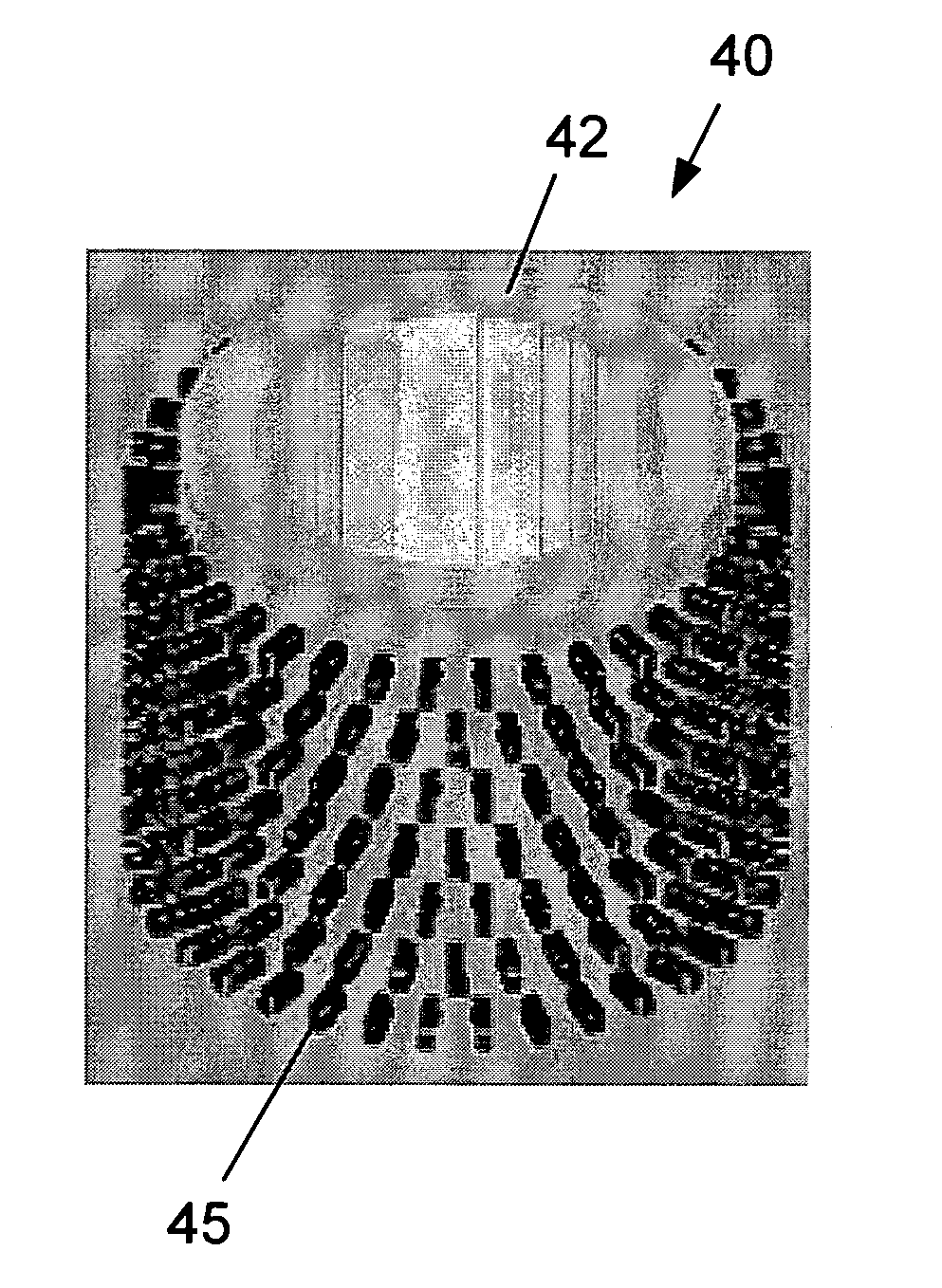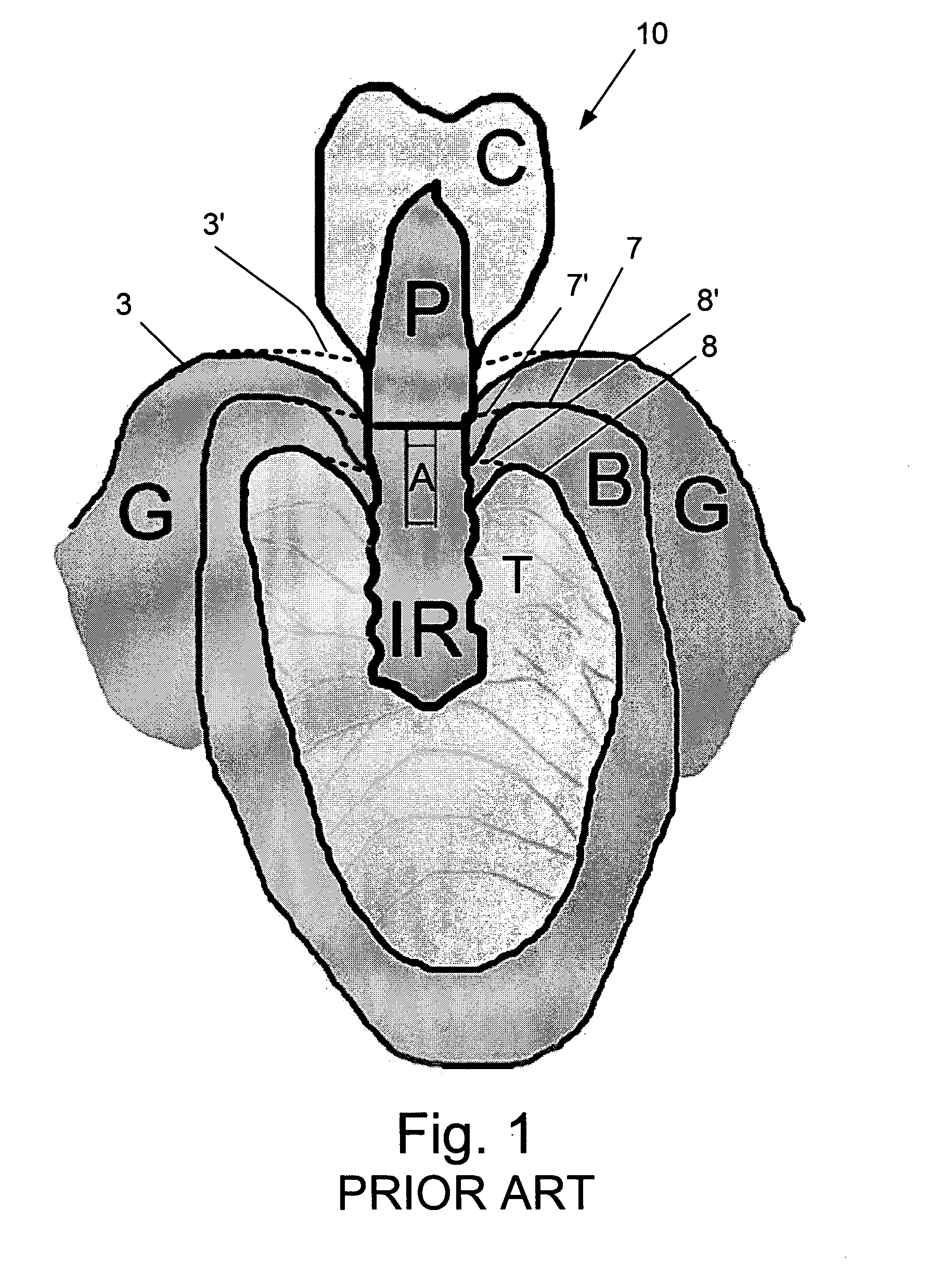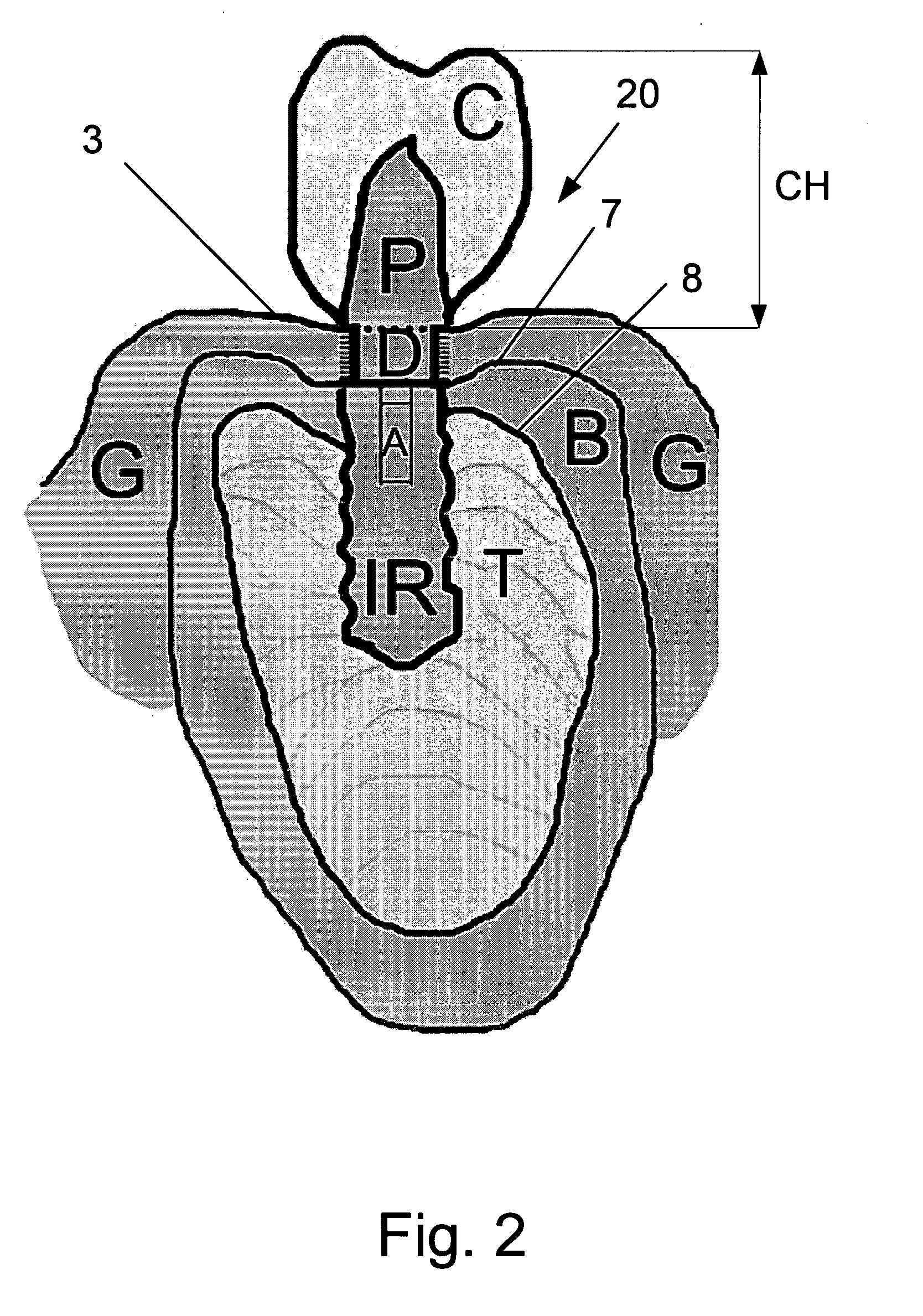Device and Method for Gingival Attachment Associated with Endosseous Implants
a technology of endosseous implants and attachment devices, which is applied in the field of dental implants, can solve the problems of affecting the normal structure of teeth and papillas, unable to maintain the normal structure of teeth and papilla, and the disoriented gingival tissue surrounding the cervical part of the implant is formed
- Summary
- Abstract
- Description
- Claims
- Application Information
AI Technical Summary
Benefits of technology
Problems solved by technology
Method used
Image
Examples
Embodiment Construction
[0043]An aesthetically pleasing smile is facilitated by proper management of the soft tissues around natural teeth and implants. An optimal aesthetic configuration of the gingiva including the papilla surrounding an implant crown is usually difficult to achieve in most cases.
[0044]The present invention comprises a device that promotes the attachment of gingival tissue to the implant. The device is provided with a biocompatible and non-degradable polymeric scaffold specifically at the cervical part of the implant above the bone crest. This device restores the correct tissue orientation at the implant-cell interfaces and as a result restores the architecture of marginal gingival including papillae. Also, the attachment of the gingival tissue to the implant generates physiological tensile forces that are directed toward the crown, thus inhibiting crestal bone remodeling and bone loss.
[0045]In order to appreciate the utility of the present invention, reference is first made to FIG. 1, w...
PUM
 Login to View More
Login to View More Abstract
Description
Claims
Application Information
 Login to View More
Login to View More - R&D
- Intellectual Property
- Life Sciences
- Materials
- Tech Scout
- Unparalleled Data Quality
- Higher Quality Content
- 60% Fewer Hallucinations
Browse by: Latest US Patents, China's latest patents, Technical Efficacy Thesaurus, Application Domain, Technology Topic, Popular Technical Reports.
© 2025 PatSnap. All rights reserved.Legal|Privacy policy|Modern Slavery Act Transparency Statement|Sitemap|About US| Contact US: help@patsnap.com



